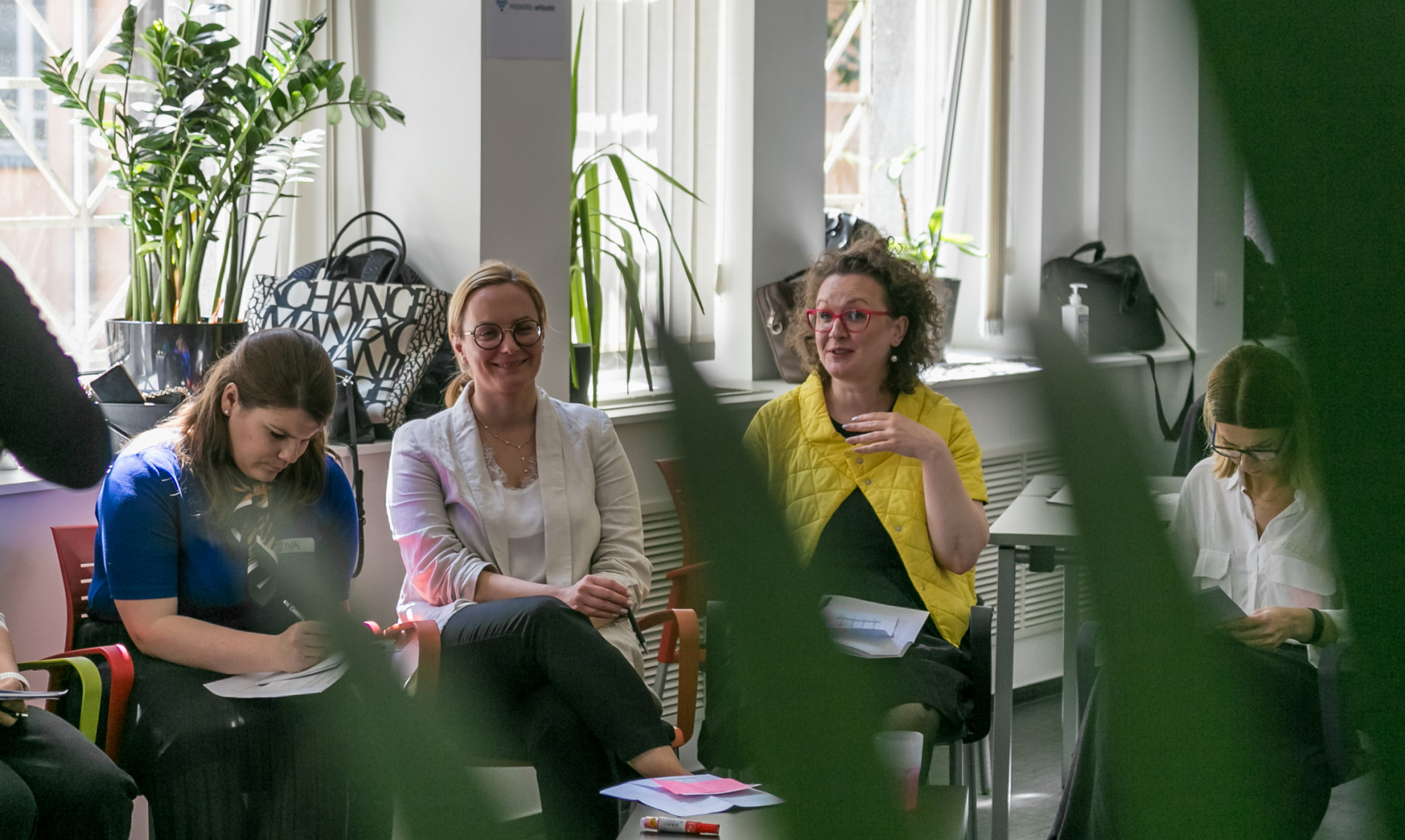Knowledge is a Permanent Asset
I became very early aware of the importance of lifelong learning. This is thanks to one of my professors, whom I respect a great deal, saying, “Knowledge is the only thing that no one can take away from you” – words that have guided me all these years. Moreover, they have proven to be useful for me in many situations later in life.
Thinking that I've finished university, so I don't need to study any more, is wrong. I hear this very often, and I know that it is only a matter of time when one will realize how important it is in today's world of rapid and sudden changes to improve and continuously work with yourself. I had also taken a break from learning for a while and closed myself off from everything. It was a strange phase of introspection and everyday life. Until then, I was working in accounting and finance, and somehow it was self-evident for me to follow changes in regulations and accounting rules, and apply them. The love for reading opened up some new perspectives and encouraged me to make changes. There was a turnaround and a job change. This required new skills but also applying the existing knowledge that I had acquired through years of work in different areas. At this point, I can say that multitasking is my advantage, even though it sometimes seems chaotic. It's chaotic just for me.
The return to school happened spontaneously. I wanted to turn to something new, and multidisciplinary learning was the right thing. As a continuation of studying economics, I also acquired a Master's degree in international relations and diplomacy. However, university knowledge turned out to be insufficient. Along the way, I attended various professional trainings. Learning platforms at the time were a revelation to me – a multitude of topics and study areas. Lots of opportunities through lectures by well-known professors and universities. I soon realized that I have the will and motivation but also that I miss the good old word and exchange of experience with colleagues.
With new tasks at work, the network of acquaintances and new opportunities for learning grew. Thanks to my colleagues, I came to a training course at the CEF. My first visit there was a positive experience. Space, people, time – everything at the CEF is adapted to learning but not in a classic way. Their friendly, active and professional environment makes everyone feel welcome, as does the attitude that we who have come to learn have something to offer.
In the meantime, the institution where I work achieved exceptional cooperation with the CEF in the form of the FISR1 project, which was of great help to us in strengthening the capacity to assess fiscal implication on structural reforms. We tried to master the method of how to effectively cost and budget structural reforms into the BiH ERP. The success of this project led to FISR2, the continuation of our cooperation and new learning opportunities.
The first training course of the NEW Structural Reforms Better Integrated Within Fiscal Frameworks (FISR2) project cycle was held in Ljubljana at the CEF premises. Spring, Ljubljana, transition to the "new normal" and the CEF people made this event very special for me. Ana, Tina and Sanja showed us an example of excellent cooperation and, in my eyes, conducted an unforgettable learning event by proving to us how a knowledge sharing activity could be more efficient and engaging. This event encouraged me to further improve myself – and not only myself. It was more than obvious that the entire group of participants shared the same feeling at this learning event.

Policy Drafting and Negotiation is another training course that I had the honor to attend. The good thing about these trainings organized for the Western Balkans and Turkey is that we have the opportunity to meet colleagues from the region and exchange experience with them. Here we could see that not only we from BiH are specific, but that we have very similar challenges as our colleagues from the region. In addition to tips and tricks for writing a good description of structural reform, from this training I also bring networking and experience sharing as key aspects of personal capacity development.
I continued to attend various CEF training sessions. The mix of mastering soft skills (networking, teamwork, creative thinking, conflict resolution, communication, listening skills and facilitation, which the CEF insists on in the form of ice breakers and games to increase the good atmosphere) in combination with raising the technical level of knowledge for creating the ERP of Bosnia and Herzegovina, turned out to be a winning combination.
In the past months, successful workshops organized by Bojana, Jasmina and Mojca in Banja Luka and Mostar laid the foundations of cooperation and teamwork for ERP BiH. At the workshops, we finally realized that we in BiH need to work together to improve our ERP. This proves that along with the right organization, great people and the desire to encourage positive changes comes motivation and, in the end, results as a permanent value of the acquired knowledge.
I hope that this personal experience will further strengthen the awareness of the need to ensure access to lifelong learning for all of us. This is the only way to ensure progress and competitiveness on the labor market. Furthermore, lifelong learning helps us return values to the community by investing in ourselves, in our physical and mental health, personal well-being and development, privately and professionally. Individuals who can and want to deliver information and transfer knowledge to the community will become a permanent asset.
